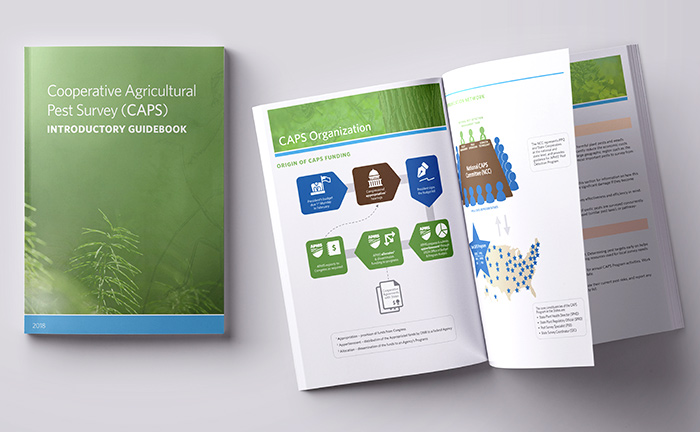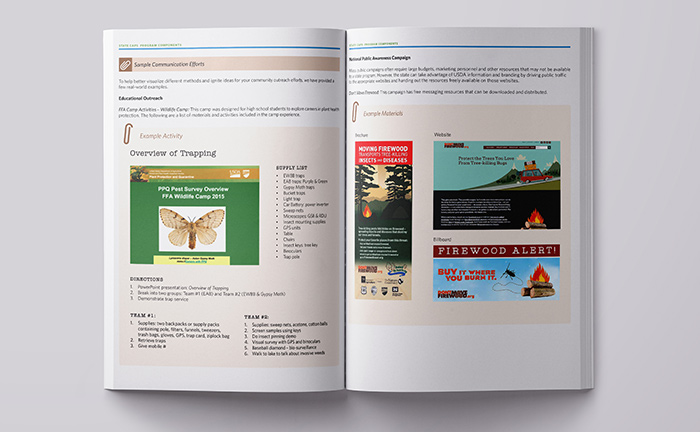Dr. Lisa Keefe, instructional assistant professor at the College of Veterinary Medicine at Texas A&M University, has been awarded a grant from the remaining funds of the 2014 Farm Bill on her research on plant health education and pest surveillance. This project builds on the success of the Center for Educational Technologies’ (CET) existing plant health training research with USDA and USAID.

“Dr. Keefe has shepherded this project and the CET’s global food security projects,” says Dr. Nicola Ritter, Director for CET and instructional assistant professor. “The CAPS program is a good fit with Dr. Keefe’s research and the CET’s experience in developing curricula and training programs.”
Pest surveillance at the local, state level is the first line of defense in protecting domestic agricultural production and natural resources. Pest surveys target exotic plant pests with great potential to harm the environment or local agricultural products. To be effective, survey activities are carefully coordinated at the state and national level. This is the mission of the Cooperative Agricultural Pest Survey (CAPS) program. The CAPS program provides national coordination and reports of pest survey activities in every state to ensure fast and accurate detection of pest threats in the United States.
To improve survey outcomes, the National Pest Detection Management team sought to provide more structured guidance and training from federal leaders. The research team at the CET collaborated with CAPS’ national team and state officials to create and distribute an employee guidebook to operating a CAPS program.

“The guidebook provides a big picture overview of the most important activities of a surveillance program, examples of successfully implementing these activities, and explanations for how the activities work together to keep the United States safe from exotic pest threats, “stated, Dr. Keefe, principal investigator of the project. “We also created two instructional videos illustrating how to build two of the more complicated pest traps and a third demonstrating best practices for placement of these traps in the field to maximize pest data collection. Such videos did not exist before this project and will be useful to both the novice and seasoned survey field operator.”
These training materials will be placed on the CAPS national website and used by pest surveillance employees and volunteers in all 50 states. These educational resources will help improve state pest surveillance operations by addressing knowledge and training gaps in pest surveillance requirements as outlined by the CAPS program.